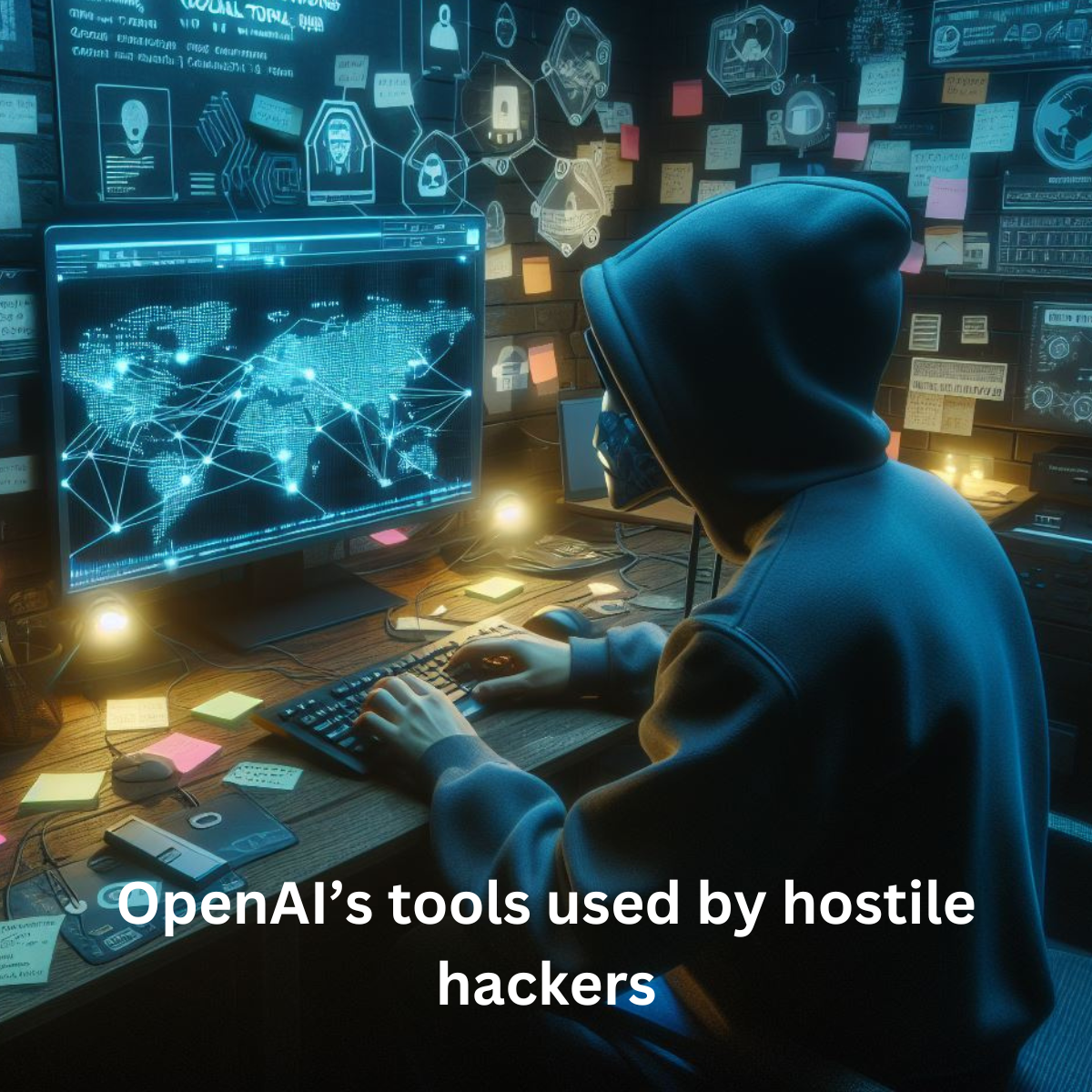OpenAI’s tools used by hostile hackers a leading artificial intelligence (AI) research company, has warned that its tools have been used by malicious actors affiliated with foreign governments to train their operatives and conduct cyberattacks. The company’s CEO, Sam Altman, has urged for a global AI security framework to prevent the misuse of the technology.
OpenAI’s tools used by hostile hackers In a blog post published on Wednesday, OpenAI revealed that it had identified five state-sponsored hacker groups that had used its services to query open-source information, translate, find coding errors, and run basic coding tasks.
The groups were linked to China, Russia, North Korea, and Iran, and had allegedly used OpenAI’s tools to translate technical papers, debug code, generate scripts, and explore how to hide processes in different electronic systems.
OpenAI said that it had taken measures to monitor and disrupt the activities of these groups, such as implementing new technologies to detect and block malicious queries, collaborating with other AI platforms to share information and best practices, and increasing public transparency about the potential risks and benefits of AI. The company also stressed that it did not allow its tools to be used for harming people, developing weapons, conducting surveillance, or injuring others or destroying property.
However, OpenAI acknowledged that it could not stop every instance of misuse, and that society had a limited amount of time to figure out how to regulate and handle the technology. Altman, who is also the co-founder of Y Combinator, a startup accelerator, said that the US had to decide whether it wanted to keep AI open and accessible for everyone, or impose more restrictions and safeguards on the technology.
“We’ve got to be careful here,” Altman told ABC News. “I think people should be happy that we are a little bit scared of this. I’m particularly worried that these models could be used for large-scale disinformation. Now that they’re getting better at writing computer code, [they] could be used for offensive cyber-attacks.”
Altman also said that AI could be the greatest technology humanity has ever developed, but that it required a deep understanding of the potential impacts and careful consideration of the ethical and social implications. He said that AI was still a tool that was under human control, and that it waited for someone to give it an input. However, he expressed concerns about who had the input control, and what their intentions were.
“There will be other people who don’t put some of the safety limits that we put on,” he added. “Society, I think, has a limited amount of time to figure out how to react to that, how to regulate that, how to handle it.”
OpenAI, an AI research company, has revealed that its tools have been used by foreign hackers to train and attack. The company’s CEO, Sam Altman, has called for a global AI security framework to prevent misuse. He said that AI could be a great technology, but also a dangerous one, and that society had to decide how to deal with it.
AI misuse is the unethical or harmful application of artificial intelligence, either intentionally or unintentionally. Some examples of AI misuse are:
Creating fake or misleading content: AI can be used to generate realistic images, videos, audio, or text that can deceive or manipulate people.
Hacking or attacking systems: AI can be used to exploit vulnerabilities, bypass security measures, or launch cyberattacks on various systems.
Violating privacy or human rights: AI can be used to collect, analyze, or share personal or sensitive data without consent or oversight. For example, some facial recognition systems have been used for mass surveillance, racial profiling, or social scoring, which can infringe on people’s privacy and human rights.
Discriminating or harming people: AI can be used to make decisions or take actions that can negatively affect people’s lives, opportunities, or well-being. For example, some AI systems have been found to exhibit bias, prejudice, or unfairness against certain groups of people, such as women, minorities, or

